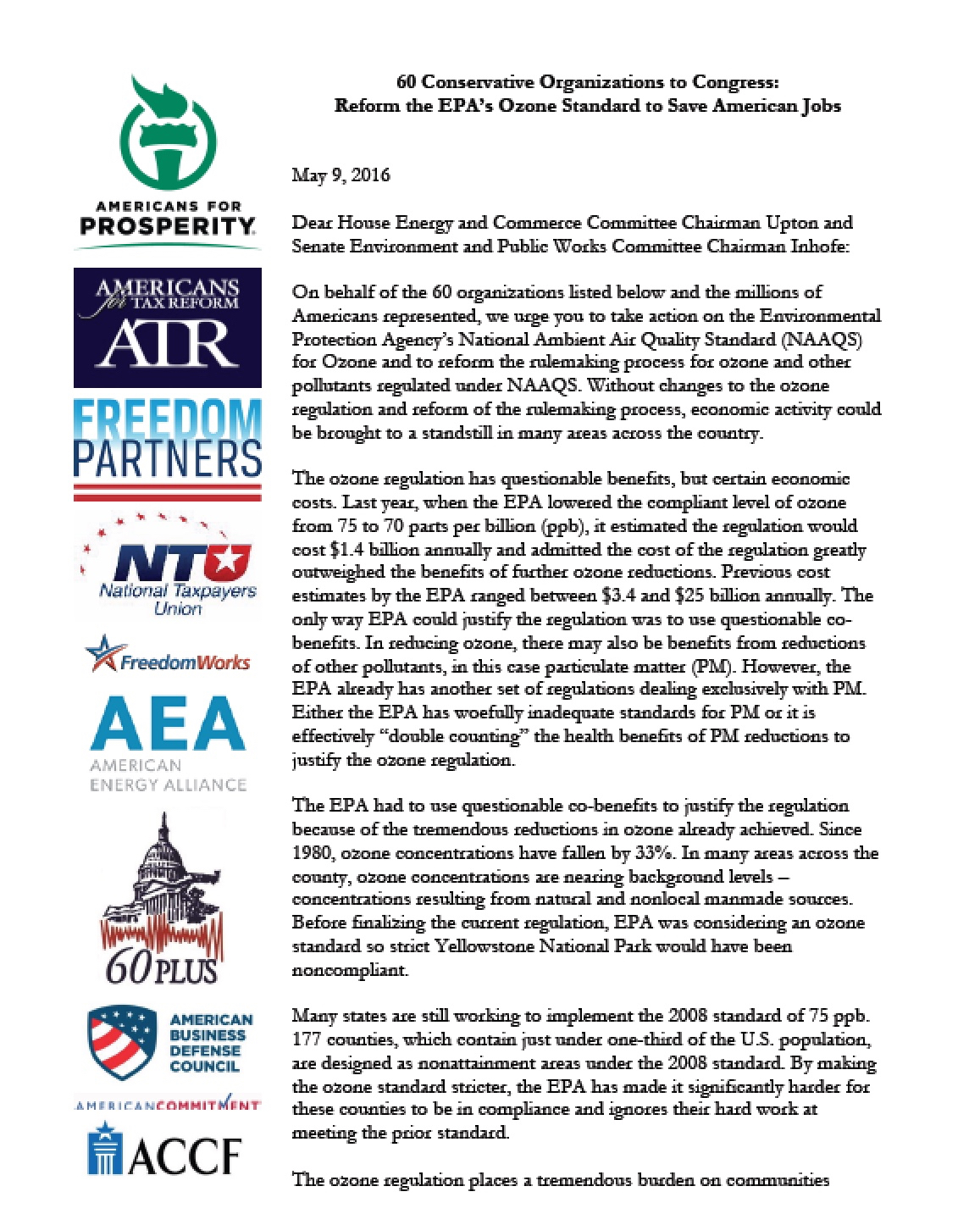 The John Locke Foundation’s Kory Swanson is among the 60 signatories of a newly released letter calling for federal legislation that would give states flexibility in dealing with the U.S. Environmental Protection Agency’s new ozone standard.
The John Locke Foundation’s Kory Swanson is among the 60 signatories of a newly released letter calling for federal legislation that would give states flexibility in dealing with the U.S. Environmental Protection Agency’s new ozone standard.
From the letter:
On behalf of the 60 organizations listed below and the millions of Americans represented, we urge you to take action on the Environmental Protection Agency’s National Ambient Air Quality Standard (NAAQS) for Ozone and to reform the rulemaking process for ozone and other pollutants regulated under NAAQS. Without changes to the ozone regulation and reform of the rulemaking process, economic activity could be brought to a standstill in many areas across the country.
The ozone regulation has questionable benefits, but certain economic costs. Last year, when the EPA lowered the compliant level of ozone from 75 to 70 parts per billion (ppb), it estimated the regulation would cost $1.4 billion annually and admitted the cost of the regulation greatly outweighed the benefits of further ozone reductions. Previous cost estimates by the EPA ranged between $3.4 and $25 billion annually. The only way EPA could justify the regulation
was to use questionable co-benefits. In reducing ozone, there may also be benefits from reductions of other pollutants, in this case particulate matter (PM). However, the EPA already has another set of regulations dealing exclusively with PM. Either the EPA has woefully inadequate standards for PM or it is effectively “double counting” the health benefits of PM reductions to justify the ozone regulation. …
… Given the harmful economic effects, we ask that you consider measures to change the ozone standard and reform the rulemaking process. Currently, the Ozone Standards Implementation Act of 2016 (H.R. 4775, S. 2882) is one such measure that achieves these objectives. The legislation would push back the attainment deadline for states and require economic feasibility to be considered. Additionally, it would bring much needed reform to the rulemaking process by changing the review period for pollutants under NAAQS from every 5 years to every 10.


